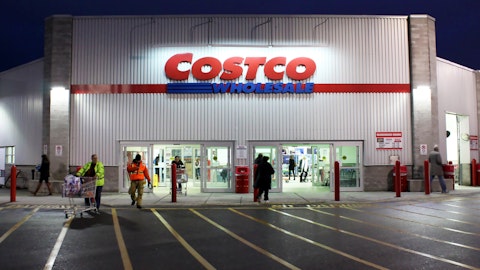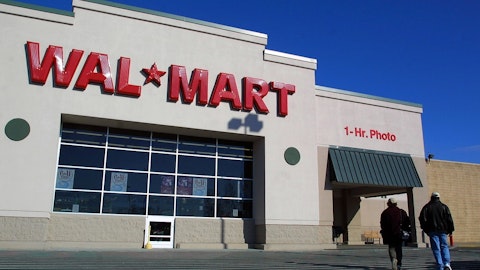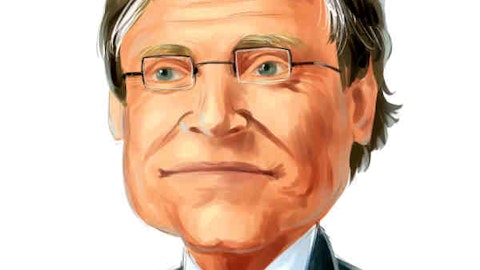A study conducted by PricewaterhouseCoopers LLP, released in 2014, concluded that retail was the main pillar of growth for the U.S. economy. According to the somewhat outdated study, retail was the largest private employer in the nation as the sector supported directly or indirectly roughly 42 million jobs. Although these figures might have changed slightly in the past several years, retail continues to power the American economy. Economists and investors usually closely monitor retail sales to get an idea about the health of the U.S. economy and about changes in consumer sentiment. However, as individuals are spending a higher share of their disposable income on services at the expense of goods, the performance of department stores no longer serves as a strong barometer for consumer spending and the overall health of the world’s largest economy. Just recently, Commerce Department data showed a 1.3% increase in April retail sales from a month earlier, so the U.S. economy is regaining momentum after a sluggish growth in the first quarter. That being said, we compiled a list of five retailers favored by funds managed or founded by billionaire investors from our database.
Through extensive research, we determined that imitating some of the picks of hedge funds and other institutional investors can help generate market-beating returns over the long run. The key is to focus on the small-cap picks of these investors, since they are usually less followed by the broader market and are less price-efficient. Our backtests that covered the period between 1999 and 2012, showed that following the 15 most popular small-caps among hedge funds can help a retail investor beat the market by an average of 95 basis points per month (see more details here).
![Walmart-WMT-retail-750x563[1]](https://imonkey-blog.imgix.net/blog/wp-content/uploads/2015/10/16115716/Walmart-WMT-retail-750x5631-750x563.png?auto=format&fit=clip&expires=2082758400&width=480&height=360)
#5. Kohl’s Corporation (NYSE:KSS)
– Billionaires with long positions as of March 31: 6
– Aggregate value of billionaires’ holdings as of March 31: $178.08 Million
The number of billionaire asset managers followed by Insider Monkey with equity investments in Kohl’s Corporation (NYSE:KSS) increased to six from four during the March quarter, while the overall value of those investments rose by 7% quarter-over-quarter to $178.08 million even though Kohl’s shares inched down by 1% during the same period. Online shopping has reshaped the retail industry quite significantly in recent years, as consumers are increasingly gravitating toward buying more items online. Department store chain Kohl’s appears to be a victim of the aforementioned trend, as its first-quarter net sales decreased 3.7% year-on-year to $4.0 billion. More importantly, the company’s first-quarter earnings declined a significant 50% year-over-year to $0.31 per share due to pricing reductions to clear excess inventory. Kohn’s paid shareholders a cash dividend of $0.50 per share in the first quarter of 2016, which equates to an impressive (but risky) annual dividend yield of 5.8%. Kohl’s shares are down 27% year-to-date. David Harding’s Winton Capital Management was the owner of 1.27 million shares of Kohl’s Corporation (NYSE:KSS) at the end of the first quarter.
Follow Kohls Corp (NYSE:KSS)
Follow Kohls Corp (NYSE:KSS)
Receive real-time insider trading and news alerts
Read on to see the other four retailers that billionaires are betting on, according to the latest round of 13F filings.
#4. Dollar General Corp. (NYSE:DG)
– Billionaires with long positions as of March 31: 7
– Aggregate value of billionaires’ holdings as of March 31: $253.53 Million
Although the number of billionaire money managers invested in Dollar General Corp. (NYSE:DG) jumped to seven from five during the first three months of 2016, the aggregate value of those managers’ equity investments in the company fell by 41% quarter-on-quarter to $253.53 million despite an increase of 19% in the value of DG shares. As a result, the billionaire managers invested in the U.S. discount retailer were actually trimming their exposure to the company during the first quarter of 2016. Dollar General, which offers national brand and private brand products at prices below the $10 price tag through 12,719 stores across 43 states, has seen its market value gain 26% since the start of 2016. Just recently, research firm BTIG started coverage on Dollar General with a ‘Buy’ rating and a price target of $105, saying that the company has a “strong track record of operating results with 2015 the 26th consecutive year of positive same store sales growth”. Martin D. Sass’s MD Sass acquired a new stake of nearly 745,000 shares of Dollar General Corp. (NYSE:DG) during the March quarter.
Follow Dollar General Corp (NYSE:DG)
Follow Dollar General Corp (NYSE:DG)
Receive real-time insider trading and news alerts
#3. Macy’s Inc. (NYSE:M)
– Billionaires with long positions as of March 31: 8
– Aggregate value of billionaires’ holdings as of March 31: $538.31 Million
There was a number of eight money managers with ten-figure fortunes invested in Macy’s Inc. (NYSE:M) both at the end of the first quarter of 2016 and the final quarter of 2015. However, the dollar value of those managers’ equity positions in Macy’s grew by almost 17% quarter-on-quarter to $538.31 million, mainly due to a 27% gain in the value of Macy’s shares. Hence, some billionaires did cut their stakes in the U.S. department store chain during the first three months of 2016. The omnichannel retail firm that operates stores under three brands, namely Macy’s Bloomingdale’s and Bluemercury, has been experiencing a tough period lately, enduring declining sales and contracting margins amid sustained weakness in the overall department store sector. Macy’s comparable sales in the first quarter dropped 5.6% year-over-year, while the company’s bottom line fell a disturbing 39.9% year-over-year. With Macy’s shares down 7% year-to-date, the company is currently refurbishing a store location in Columbus, Ohio in an attempt to inject new dynamism. David Einhorn’s Greenlight Capital reported owning 7.06 million shares of Macy’s Inc. (NYSE:M) in its latest 13F.
Follow Macy's Inc. (NYSE:M)
Follow Macy's Inc. (NYSE:M)
Receive real-time insider trading and news alerts
#2. Costco Wholesale Corporation (NASDAQ:COST)
– Billionaires with long positions as of March 31: 8
– Aggregate value of billionaires’ holdings as of March 31: $1.19 Billion
Costco Wholesale Corporation (NASDAQ:COST) received some love from the billionaires followed by our team during the first quarter of 2016, with the number of those with stakes in Costco increasing to eight from six quarter-over-quarter. Nonetheless, the aggregate value of their positions shrunk by nearly 3% sequentially to $1.19 billion, partially due to a 2% decline in the value of Costco shares. Costco’s stock reached an all-time high of $169.73 in December and the company seem to be on track to surpass that record again this year. Costco shares are down by 3% year-to-date although the drop was offset by a 7% gain registered in the past month. The primary feature that makes Costco Wholesale stand out in the entire retail sectors is that the warehouse club focuses on its membership model, so the company doesn’t need to spend vast amounts of capital on advertising. Costco has around 44.6 million members across the globe and the chain does offer customers a great pool of reasons to buy the $55-membership. Warren Buffett’s Berkshire Hathaway owned 4.33 million shares of Costco Wholesale Corporation (NASDAQ:COST) on March 31.
Follow Costco Wholesale Corp W (NASDAQ:COST)
Follow Costco Wholesale Corp W (NASDAQ:COST)
Receive real-time insider trading and news alerts
#1. Wal-Mart Stores Inc. (NYSE:WMT)
– Billionaires with long positions as of March 31: 8
– Aggregate value of billionaires’ holdings as of March 31: $5.34Billion
The so-called “billionaire” hedge fund sentiment towards Wal-Mart Stores Inc. (NYSE:WMT) did not change during the January-to-March period, as the number of billionaire asset managers from our system with equity positions in the company remained at eight. However, the overall value of their holdings inched up by almost 5% quarter-over-quarter to $5.34 billion, mainly due to a 13% increase in the share price of Wal-Mart’s stock. Therefore, some billionaires were actually reducing their exposure to world’s largest retailer during the first quarter. The multinational retail giant’s comparable sales have increased seven consecutive quarters, thanks to six straight quarters of positive traffic. Investors are well aware that Wal-Mart’s biggest threat is eCommerce giant Amazon.com Inc. (NASDAQ:AMZN), but the world’s number one retailer has been channeling capital toward expanding its presence in the online space as well. Wal-Mart plans to invest $2 billion into e-commerce over the next two years by supporting initiatives such as mobile wallet called Wal-Mart Pay, and an online grocery pickup service, to name just a few. Wal-Mart shares are up by 16% so far in 2016. The Oracle of Omaha, Warren Buffett, also owns 55.24 million shares of Wal-Mart Stores Inc. (NYSE:WMT) as of the end of March.
Follow Walmart Inc. (NYSE:WMT)
Follow Walmart Inc. (NYSE:WMT)
Receive real-time insider trading and news alerts
Disclosure: None




